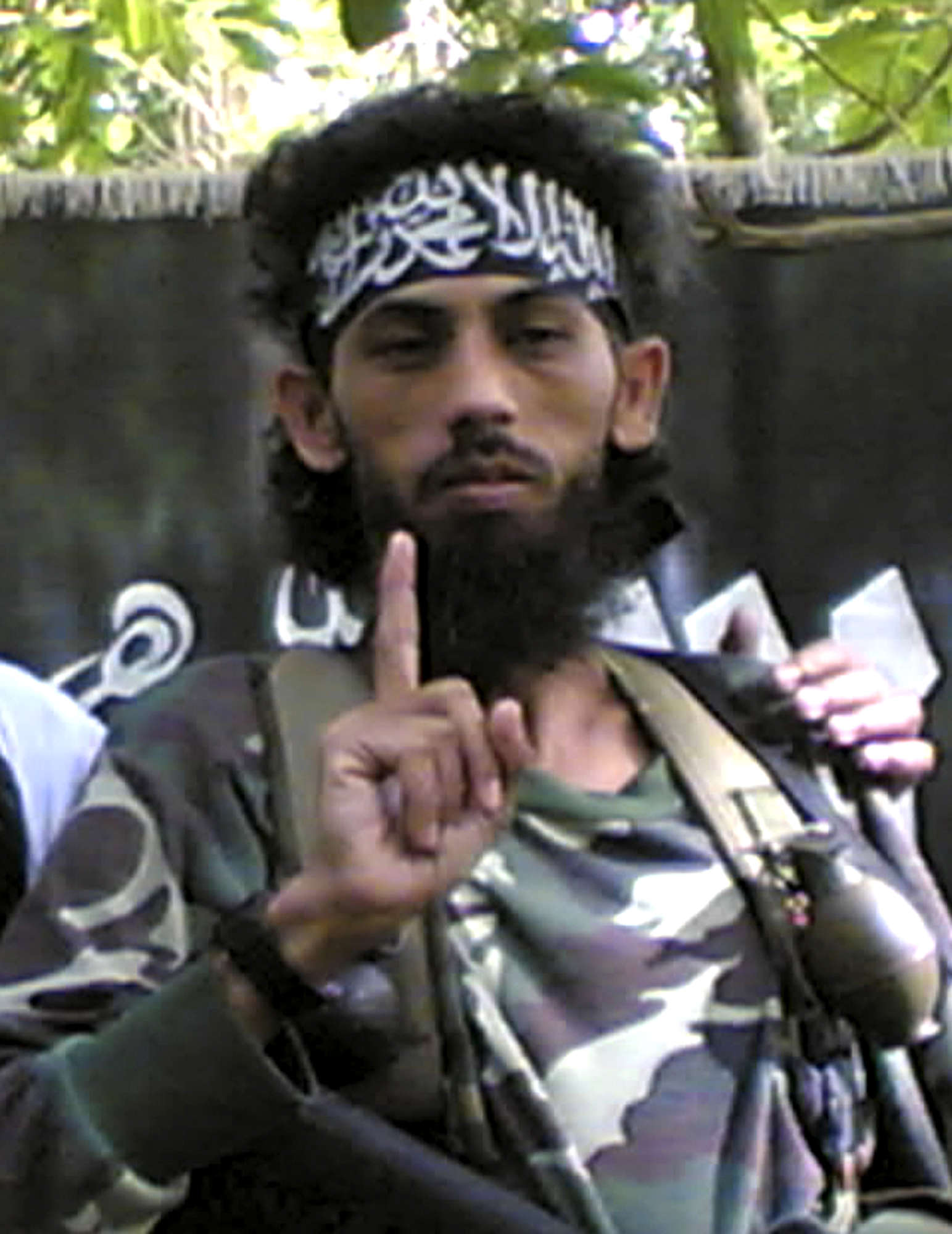
Umar Patek addresses fellow militants in an Abu Sayyaf mountain encampment on southern Jolo island sometime in 2007 in southern Philippines. (Photo: AP)
You’d think Indonesia would jump at the chance to try Umar Patek, the alleged mastermind of the 2002 Bali Bombings. But the head of the country’s anti-terror agency, Ansyaad Mbai, says a high-profile terror trial is too much of a security risk. Patek, one of the leaders of the al-Qaeda linked Southeast Asian terror group Jemaah Islamiah (JI), was arrested last winter in Abbottabad, Pakistan, just weeks before the raid on Osama bin Laden’s compound. Like bin Laden, Patek had been on the run for decades, a wanted man with a price on his head. Now that he’s been captured, however, his country doesn’t seem to want him back. In an interview with the Sydney Morning Herald, Ansyaad Mbai said somebody else should handle the case. “Umar Patek was chased by many countries,” he said. “…But now that he’s arrested it’s as if Indonesia must face the problem alone.”
Mbai’s reluctance is telling. Since the 2002 attacks, this young democracy has made counter-terrorism a national priority, arresting hundreds of militants and weakening al-Qaeda-linked networks. Yet the threat of militarism persists. In March, a series of ‘book bombs’ were sent to 4 liberal Indonesians — a politician, a counter-terror expert, the chair of a youth organization and a singer. In April, a suicide bomber attacked a police mosque killing himself and injuring 30 others. And last month, the capital was put on lock-down for the trial of radical cleric Abubakar Ba’asyir, who, after being sentenced to 15 years in prison, was greeted like a religious rock star outside the court. Mbai worries that Patek’s case, like Ba’asyir’s, could become rallying cry for would-be militants. If jailed, he could also extend his reach from within the country’s crowded and corrupt prison system, where radicals often seek recruits. “He’ll be like fresh air for remnants of the terrorism network,” Mbai said.
So, who will try Patek? That’s still unclear. Australia, Indonesia’s neighbor to the south, has been mentioned as a possibility. Almost 90 Australians were killed in the 2002 attacks and the country said it would “liaise” with Pakistan on the Patek case. However, a spokesman for Kevin Rudd, Australia’s foreign minister, said the trial is Indonesia’s responsibility. “Given Patek is an Indonesian citizen and that some of the most serious crimes he is believed to have committed took place in Indonesia, the Australian government considers any action should in the first instance be taken by Indonesian authorities,” his spokeswoman told AFP. It’s a tough lesson for would-be terror fighters: hunting militants is one thing — justice, another.
Emily Rauhala is a writer-reporter at TIME. Find her on Twitter at @emilyrauhala. You can also continue the discussion on TIME’s Facebook page and on Twitter at @TIME.
MORE: Read an interview with an expert on terrorism in Southeast Asia.

